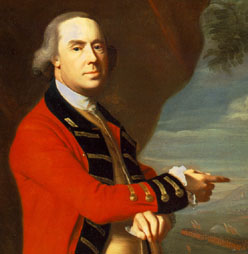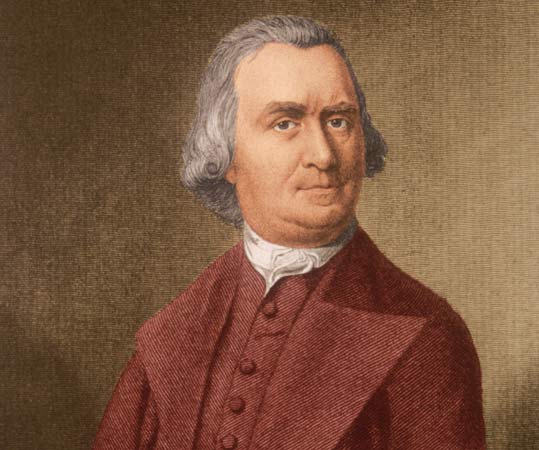Xenophon
Gone and forgotten
Since my previous thread was fairly well recived, here is another from my files, in honor of the birth of the United States
The Shot Heard Round the World
During the early 1770's, after years of frustration and growing resentment, the American colonists in and around Boston, Massachusetts, decided to act boldly against England's heavy taxation on tea, sugar, and other goods. The Boston Tea Party (December 16, 1773) was one of several such acts of retaliation against England's "unjust treatment." The British countered by closing Boston Harbor and imposing the Intolerable Acts (March-June, 1774), which effectively placed Boston under martial law and brought hundreds of troops into the city.
In fear of the British army, a group of Patriots, who called themselves "Minutemen," began to collect arms and munitions. Their main storehouse of arms was at Concord, a small town about 20 miles (32 km.) northwest of Boston. On April 18, 1775, Dr. Joseph Warren, a revolutionary leader from Boston, learned that British General Thomas Gage planned to send 700 men to Concord, where he intended to seize the colonists' weapons and arrest Patriot leaders Samuel Adams and John Hancock in neighboring Lexington. Warren sent a local silversmith, Paul Revere, to spread the alarm that the British were coming.
At dawn, April 19, 40 to 50 Minutemen gathered to face Gage's troops,
under the command of Major John Pitcairn, as they approached Lexington's village green. According to one report, Pitcairn shouted at the Patriots: "Lay down your arms, you damned rebels!" In reply, Captain John Parker, the American commander, reportedly said to his men, "Stand your ground. Don't fire unless fired upon. But if they mean to have a war, let it begin here."
Suddenly a shot rang out, then others, followed by a fusillade of British musketry. Eight Minutemen fell dead, and ten others were wounded. Although the Minutemen were driven back from Lexington by superior forces, they immediately regrouped at nearby Concord's North Bridge. By now, the news about Lexington had spread, and Minutemen raced to the scene to do battle with the Redcoats. Hiding behind rocks, trees and hills, they sniped at the British troops as they marched 16 miles (26 km.) back toward Boston. By the time the British troops reached the city, they had lost 70 dead and 173 wounded. Colonial losses were 49 killed and 46 wounded.
What Poet Ralph Waldo Emerson later referred to as "the shot heard round the world" had signaled the beginning of the Revolutionary War. The war of words had turned into a fullscale shooting war.
The Shot Heard Round the World
During the early 1770's, after years of frustration and growing resentment, the American colonists in and around Boston, Massachusetts, decided to act boldly against England's heavy taxation on tea, sugar, and other goods. The Boston Tea Party (December 16, 1773) was one of several such acts of retaliation against England's "unjust treatment." The British countered by closing Boston Harbor and imposing the Intolerable Acts (March-June, 1774), which effectively placed Boston under martial law and brought hundreds of troops into the city.
In fear of the British army, a group of Patriots, who called themselves "Minutemen," began to collect arms and munitions. Their main storehouse of arms was at Concord, a small town about 20 miles (32 km.) northwest of Boston. On April 18, 1775, Dr. Joseph Warren, a revolutionary leader from Boston, learned that British General Thomas Gage planned to send 700 men to Concord, where he intended to seize the colonists' weapons and arrest Patriot leaders Samuel Adams and John Hancock in neighboring Lexington. Warren sent a local silversmith, Paul Revere, to spread the alarm that the British were coming.
At dawn, April 19, 40 to 50 Minutemen gathered to face Gage's troops,
under the command of Major John Pitcairn, as they approached Lexington's village green. According to one report, Pitcairn shouted at the Patriots: "Lay down your arms, you damned rebels!" In reply, Captain John Parker, the American commander, reportedly said to his men, "Stand your ground. Don't fire unless fired upon. But if they mean to have a war, let it begin here."
Suddenly a shot rang out, then others, followed by a fusillade of British musketry. Eight Minutemen fell dead, and ten others were wounded. Although the Minutemen were driven back from Lexington by superior forces, they immediately regrouped at nearby Concord's North Bridge. By now, the news about Lexington had spread, and Minutemen raced to the scene to do battle with the Redcoats. Hiding behind rocks, trees and hills, they sniped at the British troops as they marched 16 miles (26 km.) back toward Boston. By the time the British troops reached the city, they had lost 70 dead and 173 wounded. Colonial losses were 49 killed and 46 wounded.
What Poet Ralph Waldo Emerson later referred to as "the shot heard round the world" had signaled the beginning of the Revolutionary War. The war of words had turned into a fullscale shooting war.





